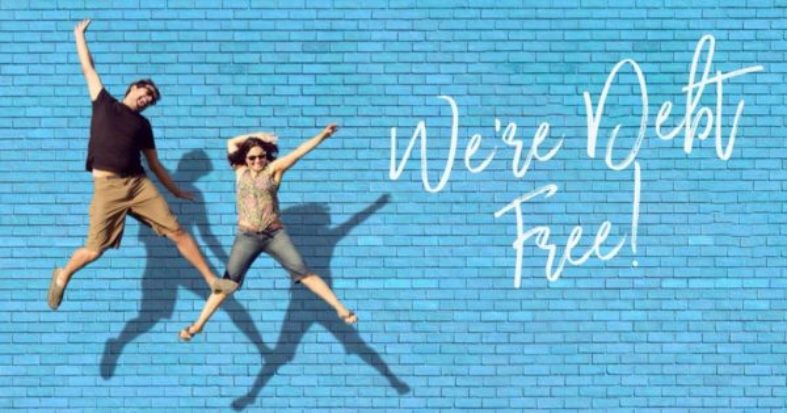Are you in debt and tired of struggling to get out?
We know how hard this can be. When you have debt, you have to remember to juggle multiple monthly payments and make sure you submit those payments on time. It’s a lot to keep track of.
Furthermore, debt is a drain on your monthly budget. Instead of splurging on fun trips or delicious dinners, you have to spend your money on monthly debt payments.
Here’s the good news: you’re not alone. The average Canadian household has $8,500 in consumer debt, excluding a mortgage. Here’s the better news: You can change your financial life. It’s just a matter of determining how to do this.
There are two good ways to pay down debt: a home equity loan and a personal loan. Depending on your unique financial situation, one solution might be better than the other.
Here’s everything you need to know about home equity loans and personal loans, and how to determine which type of loan is right for you.
What is a home equity loan?
Home equity loans are secured loans that are tied to the value of your house. Home equity is the part of your home that you truly “own.” In other words: It is the difference between your home’s worth and your mortgage balance.
For example, if your home is worth $200,000 and your mortgage balance is $100,000, then you have $100,000 in equity.
With a home equity loan, you can use the money you have invested in your home by taking out a loan and using your home as collateral. (This is why home equity loans are secured loans.)
There are two primary types of home equity loans.
Second mortgage
Here’s how a second mortgage works: The loan is deposited to your account in one lump sum. The interest rate might be variable or fixed, but it is usually higher than the rates for first mortgages.
Home equity line of credit (HELOC)
HELOCs are similar to a credit card because you are given a line of credit and you can get the money through typical banking methods. Plus, you only have to pay back what you actually use. For example, if you have a HELOC for $50,000, but only spend $20,000, then you will only need to pay back $20,000.
Pros
Even though home equity loans are not the right solution for everyone who wants to pay off debt, they do offer some benefits.
1. Lower interest rate
In general, home equity loans have some of the lowest interest rates on the market. Even though the interest rate is higher than the interest rate for a first mortgage, it is normally lower than the interest rate for personal loans.
2. Different options
One of the great things about home equity loans is that you have options. For example, if you need access to money to pay off debt, but aren’t sure of the exact amount, you can get a HELOC. If you know how much you need, then you might choose a second mortgage instead.
Cons
Home equity loans might offer benefits, but there are also some potential drawbacks.
1. There are rules
There are limits about how much you can borrow with home equity loans. This means that you cannot access the full value of your home. The largest amount you can borrow varies depending on the type of loan you choose, but in general, you won’t be able to borrow more than 80% of your home’s appraised value.
2. You must own a home (and you could lose it)
This might seem like common sense, but you must own a home to access a home equity line of credit. If you don’t own a home, you need to find another way to get access to cash to pay off your debt. But even if you do own a home, a home equity loan comes with other risks because your home is collateral for itself. If you miss payments, you could end up losing your home.
What is a personal loan?
Personal loans are loans that are used at the borrower’s discretion. Most people use personal loans for a specific reason like house repairs, cross-country moves, car maintenance or personal items like computers.
Borrowers can use personal loans for whatever they wish. For many people, personal loans are a great way to consolidate debt. Like most types of loans, personal loans have potential benefits and drawbacks.
Pros
Whether or not a personal loan is the right solution for you, this type of loan does have some unique benefits.
1. One consistent payment
If you owe money to different lenders, a personal loan might be a great way to consolidate your debt. Instead of making multiple payments every month (and remembering multiple due dates), you’ll be able to make one payment with a personal loan.
Here’s how it works—you can use a personal loan to consolidate, or pay back, your debt. Now, you are only responsible for one monthly payment. Plus, the payments are consistent.
2. Quick decision
Compared to other types of loans—like home equity loans or mortgage loans—personal loans are fairly easy to apply for and you can typically do so online. Plus, you’ll usually receive a quick decision.
If you’re in a rush or don’t want to deal with paperwork, then this might be a great way to consolidate your debt.
Cons
Personal loans do have some potential drawbacks, including high-interest rates and fees.
1. High-interest rates
The interest rates for personal loans can be high and they are ultimately determined by your credit score. So, if you have a low credit score, you’re likely to get a higher interest rate.
Interest rates also affect the overall cost of your loan, so it’s important to shop around for the best rate.
2. Fees and other consequences
Even though personal loans are usually unsecured (not tied to collateral), there are still consequences for missed or late payments. If you miss a payment or pay late, you might accrue late fees.
In addition, if you can’t pay back your loan, then the lender has the right to sue you. Having said that, the fees and consequences are similar to that of a credit card.
Bottom line
Paying off debt is personal. Whether you decide to use a home equity line of credit or a personal loan to consolidate your debt, your choice will ultimately depend on your unique financial situation. Are you ready to start paying off your debt?



